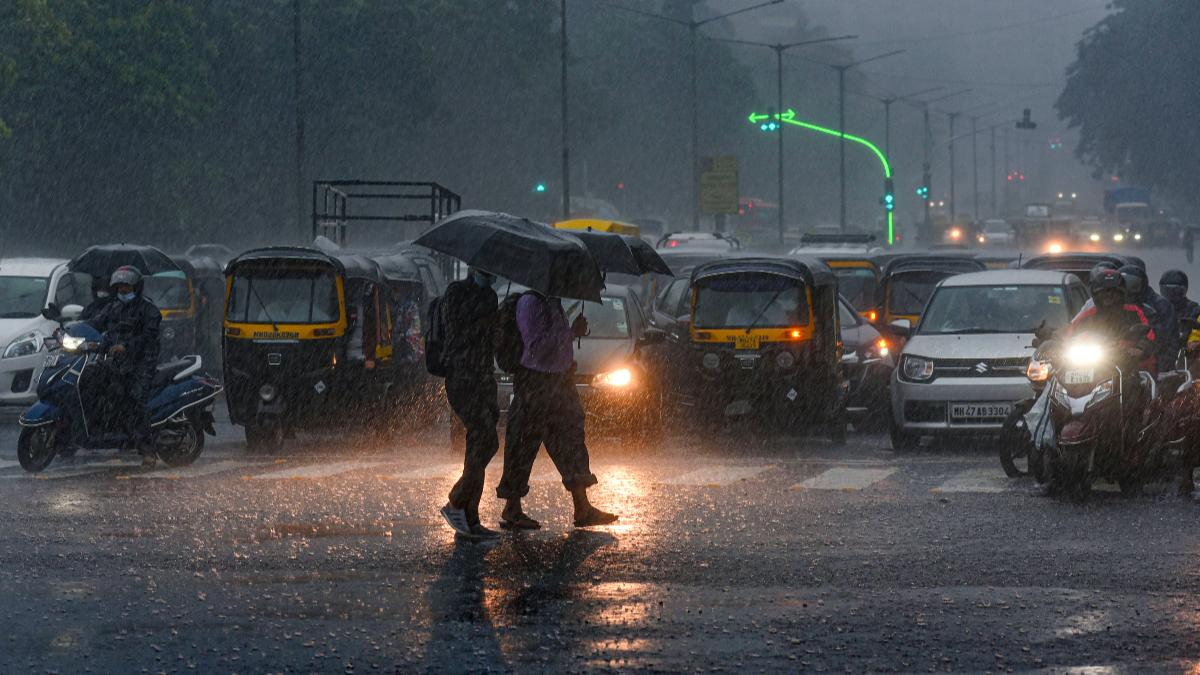Why Is It Important For Residents to Stay Informed About Heavy Rain Alerts and Take Safety Precautions?
"Stay Safe in the Storm: Why Staying Informed About Heavy Rain Alerts is Crucial for Your Safety"
Why Is It Important for Residents to Stay Informed About Heavy Rain Alerts and Take Safety Precautions?

Heavy rain events, while a natural part of many climates, can have significant and sometimes devastating impacts on communities. From flooding and infrastructure damage to health risks and disruptions in daily life, the consequences of intense rainfall can be severe. For residents, staying informed about heavy rain alerts and taking appropriate safety precautions is crucial. This blog post delves into why it’s vital to remain vigilant about weather alerts and how proactive measures can mitigate risks and enhance safety.
1. Understanding the Risks of Heavy Rain
1.1 Potential for Flooding
Flooding Threats
Heavy rain can lead to flash floods and riverine floods, both of which pose serious risks to life and property. Flash floods occur suddenly, often with little warning, and can inundate areas quickly, leading to dangerous conditions. Riverine floods, on the other hand, develop more gradually but can be prolonged and extensive.
Impact on Property
Floodwaters can damage homes, businesses, and infrastructure. Water entering buildings can ruin possessions, damage electrical systems, and lead to structural issues. Prolonged exposure to moisture can also cause mold growth, which can further damage property and impact health.
1.2 Infrastructure Damage
Road and Bridge Damage
Heavy rain can erode roads, damage bridges, and disrupt transportation networks. The repair of such infrastructure is costly and time-consuming, leading to extended periods of disruption. This can affect emergency response times, daily commutes, and the transportation of goods.
Utility Disruptions
Flooding and storms can cause outages in essential utilities such as electricity, water, and gas. Power outages can leave residents without light and heating, while contamination of water supplies can pose health risks.
1.3 Health and Safety Concerns
Waterborne Diseases
Floodwaters can carry contaminants, including bacteria and viruses, that pose health risks. Exposure to polluted water can lead to diseases such as gastroenteritis and hepatitis. Additionally, stagnant water can become a breeding ground for mosquitoes, increasing the risk of vector-borne diseases.
Accidents and Injuries
Flood conditions can lead to accidents and injuries. Swift-moving water can sweep people away, and debris can cause harm. Slip-and-fall accidents are also common during heavy rains, particularly on wet or unstable surfaces.
2. The Importance of Staying Informed
2.1 Early Warning Systems
Receiving Timely Alerts
Modern technology provides early warning systems that can alert residents to impending heavy rain and flooding. Staying informed through weather apps, emergency alert systems, and local news helps residents prepare and respond effectively.
Understanding Alert Levels
Weather alerts typically come with different levels of severity. Understanding these levels helps residents gauge the potential impact and urgency. For instance, a flood watch indicates that conditions are favorable for flooding, while a flood warning means that flooding is imminent or already occurring.
2.2 Preparedness and Planning
Creating Emergency Plans
Staying informed allows residents to create and update emergency plans. This includes planning evacuation routes, assembling emergency kits, and ensuring family members know what to do in the event of severe weather.
Safeguarding Property
Being aware of weather alerts helps residents take preventive measures to safeguard their property. This might involve moving valuables to higher ground, securing windows and doors, and ensuring that sump pumps and drainage systems are functioning properly.
2.3 Community and Personal Safety
Community Coordination
Awareness of heavy rain alerts promotes community coordination and mutual aid. Residents can work together to assist those in need, share resources, and support each other during and after a heavy rain event.
Personal Safety Measures
Informed residents are better equipped to make safe decisions during heavy rain. They are less likely to take unnecessary risks, such as driving through flooded roads or venturing into unsafe areas.
3. Taking Effective Safety Precautions
3.1 Preparing an Emergency Kit
Essential Supplies
An emergency kit should include essential supplies such as non-perishable food, water, medications, first-aid supplies, flashlights, batteries, and a portable phone charger. Having these items ready ensures that residents are prepared for extended periods without access to usual services.
Important Documents
Residents should also store important documents, such as identification, insurance papers, and medical records, in a waterproof container. This ensures that crucial information is protected in case of evacuation.
3.2 Securing the Home
Flood-Proofing Measures
To protect against flooding, residents can implement measures such as installing flood barriers, sealing basement windows, and ensuring proper grading around the home to direct water away from the foundation.
Electrical Safety
Disconnecting electrical appliances and moving them to higher levels can prevent damage from floodwaters. Additionally, installing sump pumps and ensuring that electrical systems are up to code can reduce the risk of electrical hazards.
3.3 Planning for Evacuation
Evacuation Routes
Residents should be familiar with local evacuation routes and shelters. Understanding the quickest and safest ways to leave an area can be crucial if conditions worsen.
Transportation and Communication
Ensure that vehicles are in good working condition and have sufficient fuel. Communication devices should be fully charged, and backup power sources, such as portable chargers, should be available.
3.4 Staying Safe During Heavy Rain
Avoiding Flooded Areas
During heavy rain, residents should avoid walking or driving through flooded areas. Water depth can be deceiving, and moving water can be extremely dangerous. If encountering a flooded road, turning around is the safest option.
Monitoring Weather Updates
Continuing to monitor weather updates and alerts ensures that residents stay informed about changing conditions. Adhering to advice from local authorities and emergency services can help ensure safety.
3.5 Post-Rain Precautions
Inspecting Property
After heavy rains, inspecting property for damage is essential. Look for signs of water intrusion, structural damage, and electrical issues. Addressing these problems promptly can prevent further damage and reduce health risks.
Disposing of Contaminated Items
Items that have been exposed to floodwaters should be cleaned or disposed of properly to prevent contamination. This includes discarding contaminated food, cleaning surfaces with disinfectants, and drying out affected areas to prevent mold growth. Just as we know Select Why are Mount Kenya So Prominent? Why are Mount Kenya So Prominent?
4. Conclusion
Staying informed about heavy rain alerts and taking safety precautions is not just a matter of personal safety; it is essential for protecting property, health, and community well-being. Early warning systems, preparedness plans, and proactive measures can significantly reduce the impact of heavy rain events and help residents navigate through challenging situations. By remaining vigilant and prepared, individuals and communities can better manage the risks associated with heavy rainfall and ensure a safer environment for all.




